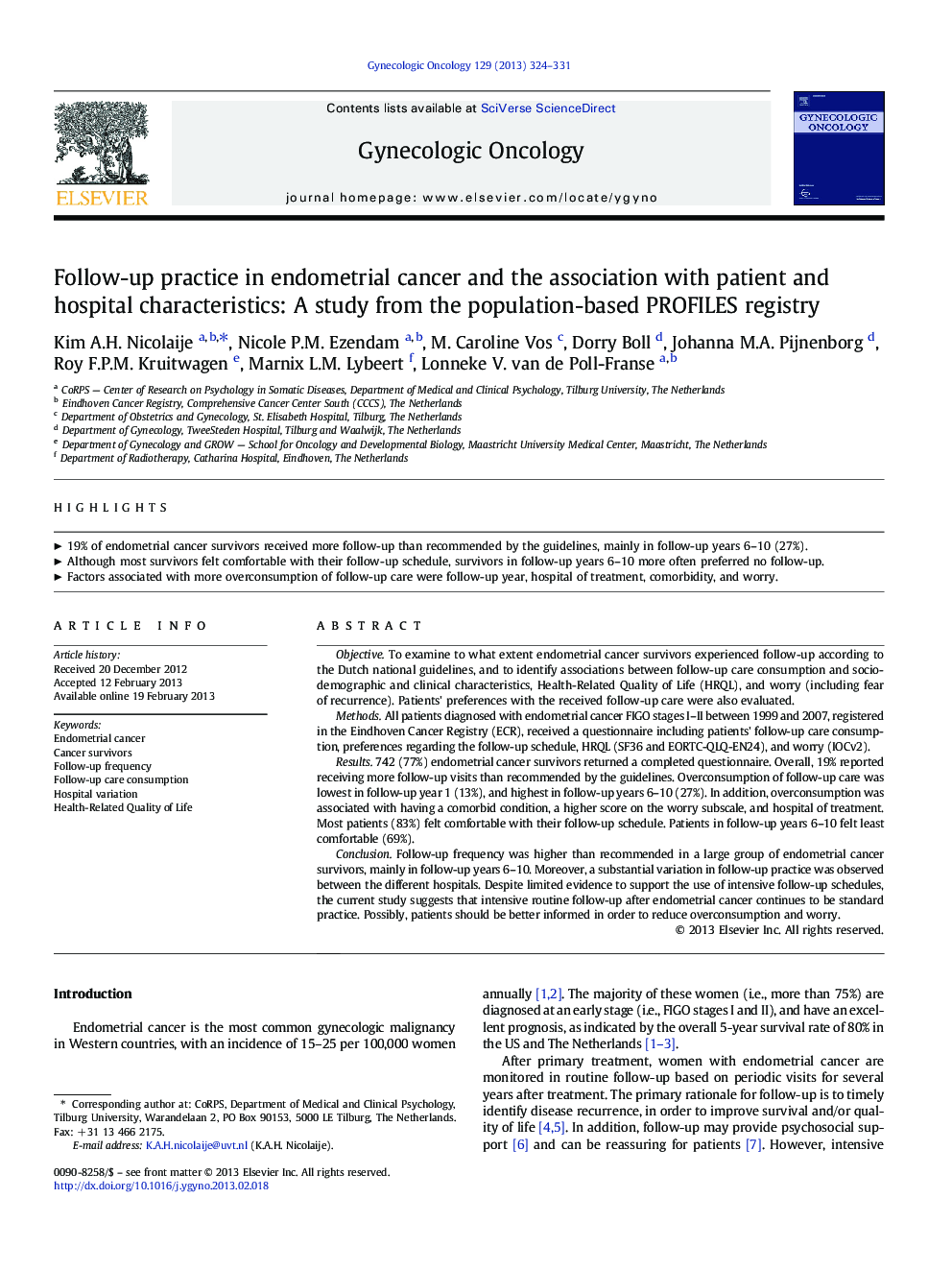| کد مقاله | کد نشریه | سال انتشار | مقاله انگلیسی | نسخه تمام متن |
|---|---|---|---|---|
| 3943547 | 1254121 | 2013 | 8 صفحه PDF | دانلود رایگان |

ObjectiveTo examine to what extent endometrial cancer survivors experienced follow-up according to the Dutch national guidelines, and to identify associations between follow-up care consumption and socio-demographic and clinical characteristics, Health-Related Quality of Life (HRQL), and worry (including fear of recurrence). Patients' preferences with the received follow-up care were also evaluated.MethodsAll patients diagnosed with endometrial cancer FIGO stages I–II between 1999 and 2007, registered in the Eindhoven Cancer Registry (ECR), received a questionnaire including patients' follow-up care consumption, preferences regarding the follow-up schedule, HRQL (SF36 and EORTC-QLQ-EN24), and worry (IOCv2).Results742 (77%) endometrial cancer survivors returned a completed questionnaire. Overall, 19% reported receiving more follow-up visits than recommended by the guidelines. Overconsumption of follow-up care was lowest in follow-up year 1 (13%), and highest in follow-up years 6–10 (27%). In addition, overconsumption was associated with having a comorbid condition, a higher score on the worry subscale, and hospital of treatment. Most patients (83%) felt comfortable with their follow-up schedule. Patients in follow-up years 6–10 felt least comfortable (69%).ConclusionFollow-up frequency was higher than recommended in a large group of endometrial cancer survivors, mainly in follow-up years 6–10. Moreover, a substantial variation in follow-up practice was observed between the different hospitals. Despite limited evidence to support the use of intensive follow-up schedules, the current study suggests that intensive routine follow-up after endometrial cancer continues to be standard practice. Possibly, patients should be better informed in order to reduce overconsumption and worry.
► 19% of endometrial cancer survivors received more follow-up than recommended by the guidelines, mainly in follow-up years 6–10 (27%).
► Although most survivors felt comfortable with their follow-up schedule, survivors in follow-up years 6–10 more often preferred no follow-up.
► Factors associated with more overconsumption of follow-up care were follow-up year, hospital of treatment, comorbidity, and worry.
Journal: Gynecologic Oncology - Volume 129, Issue 2, May 2013, Pages 324–331